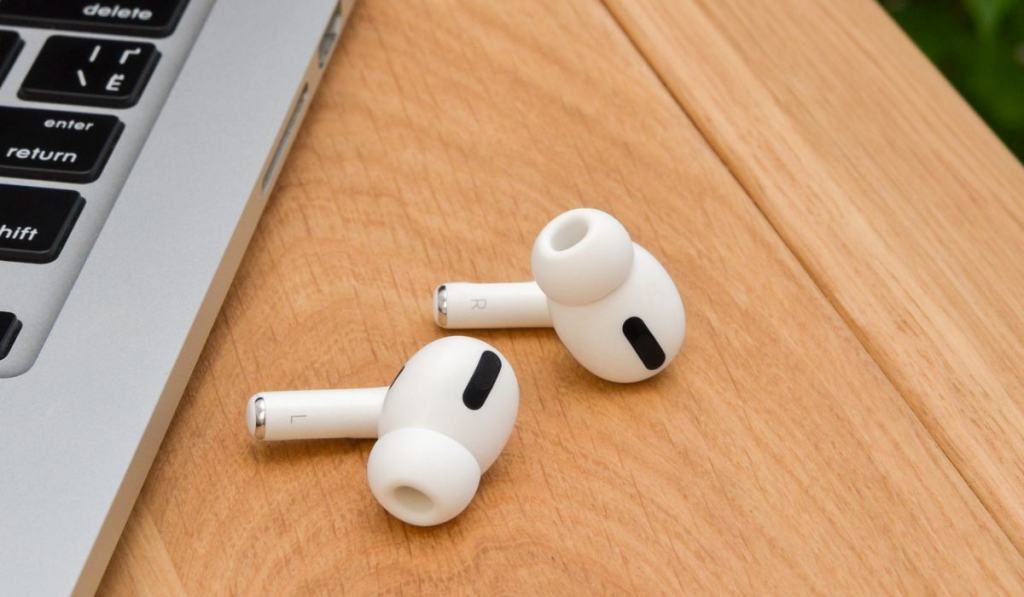Why AirPods Pro Make Some Users Sick (+ Preventing Headaches)
AirPods Pro are durable, deliver high-quality audio, and can last up to five hours when in use. However, sometimes you may experience dizziness or get a headache after using them for the first time. So, why do AirPods make you feel ill initially, and what can you do to prevent it?

The Active Noise Cancellation feature in AirPods Pro may make you feel sick. This is natural and usually temporary. To reduce discomfort, use your AirPods gradually at first and play music at a lower volume. Most people adjust to the noise cancellation, but it’s also possible to disable it entirely.
Let’s dive into the details on why a new AirPods Pro may make you feel sick and what you can do to prevent it. These are great headphones, and if you’re avoiding them because you’re worried they’ll make you nauseous or uncomfortable, rest assured that there are some ways around this.
Why Do AirPods Pro Make Some People Feel Sick?
Most people feel sick after using AirPods because they aren’t used to the noise cancellation effect. Because of the way AirPods produce low-frequency humming and static noise, you might experience nausea.
Some AirPods can increase the sound pressure inside your eardrum, causing you to feel dizzy or get a headache.
However, this phenomenon isn’t limited to AirPods, and most active noise cancellation (ANC) headphones might make you feel ill the first time you use them.
How Do ANC Headphones Make People Sick?
Active Noise Cancellation (ANC) is present in most of the latest wireless headphones. Some ANC headphones will block out all background noises, while others will reduce the frequency of these sounds for clearer audio. This allows for high-quality, clear audio to come through even when you’re in a loud or busy environment.
However, most people aren’t used to being unable to hear background noise. You might feel a “hollow” sensation in your head, and it may feel strange to hear only focused sounds. Fortunately, you will get used to the effect after a day or two of using the ANC headphones, and any irritation shouldn’t last longer than two weeks at most.
Another reason why some people may feel nauseous when wearing ANC headphones is because of the increase in sound pressure. Noise cancellation uses sound waves to balance out external sounds, and the constant pressure of these waves can give you a headache or make you nauseous.
There are also instances where the seal isn’t high-quality, causing the noise-canceling loop to increase the volume and produce a high-pitched noise.
The important thing to note is that apart from making you feel uncomfortable, these sound waves won’t affect your hearing in the long term. The waves are much lower than the safe hearing limit of 85 decibels. However, they may become a problem if you’re used to listening to loud music.
Lastly, ANC earphones will sometimes emit higher frequency static noise to block out external noise. This static noise is usually caused by older models, and newer AirPods are designed to cancel it out.
Static noise may also be caused by a faulty circuit in the headphone or from excessive lag in noise cancellation. However, this usually only affects lower-quality headphones.
Does The ANC In AirPods Make Everyone Feel Sick?
ANC AirPods don’t make everyone sick, even though most people will take a couple of minutes to get used to the sound cancellation effect. Some people will take longer (about one or two weeks) to adjust to the ANC headsets, and very small amount of people won’t adapt to the effect of noise cancellation technology at all.
If you continue to feel sick after about two weeks of using ANC AirPods, you should stop wearing them.
Some people are at a higher risk of getting sick than others. If you get dizzy regularly due to other equipment, pressure changes, or loud sounds, it might take you more time to adjust to ANC headsets. Sometimes, you may feel more pressure when using AirPods in a noisy area or when the volume is too high.
If you’re getting sick after a few hours of using ANC AirPods Pro (on Amazon), it’s probably because you’re been using them for too long. It’s important to gradually adjust to the headsets and avoid using them for several hours on end.
Also, not all AirPods will make you sick. For example, the AirPod Max (on Amazon) doesn’t have the same noise cancellation issues as the AirPods pro and is better for people who have trouble adjusting to new sound equipment.
How Do I Prevent Headaches or Dizziness When Using AirPods Pro?

You can prevent headaches or dizziness when using AirPods Pro by turning off the noise cancellation feature, gradually adjusting to the earphones, and playing music at a lower volume. If nothing else works, the AirPods Max might be a better option for you.
Turning off the noise-canceling feature is the easiest way to avoid the discomfort of adjusting to ANC. However, you’ll face the same disadvantage of regular headsets: you’re less likely to get clear audio because of background noise.
The best way to adapt to ANC AirPods is to gradually get accustomed to them. Try using limiting use of your headphones to one to two hours a day for a couple of days until you get used to the sound. Also, avoid playing music too loud as this will increase the static produced by noise canceling.
Recommended AirPods and AirPods Pro Reading
- Why are my AirPods making a ringing noise?
- Why AirPods Pro Make Some Users Sick (+ Preventing Headaches)
- Why does my AirPod case die so fast?
- AirPods Pro: Are They Really Worth It?
- Is it bad to sleep with AirPods in?
- How To Mute Airpods (Generations 1, 2, 3, and Pro!)
- Why Can’t I Answer Calls on My Airpods Pro? (8 Troubleshooting Steps!)
- AirPods Sleep Mode: Do AirPods Pro Go To Sleep?